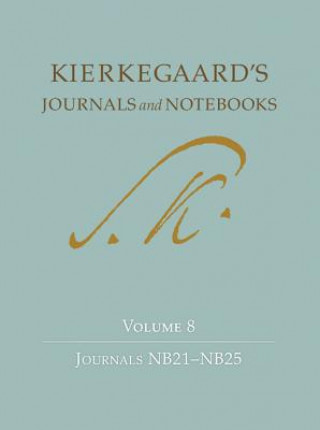
Kód: 09076690
Kierkegaard's Journals and Notebooks, Volume 8
Autor Soren Kierkegaard
For over a century, the Danish thinker Soren Kierkegaard (1813-55) has been at the center of a number of important discussions, concerning not only philosophy and theology, but also, more recently, fields such as social thought, p ... celý popis
- Jazyk:
 Angličtina
Angličtina - Väzba: Pevná
- Počet strán: 800
Nakladateľ: Princeton University Press, 2015
- Viac informácií o knihe

218.15 €

Skladom u dodávateľa v malom množstve
Odosielame za 12 - 17 dní
Potrebujete viac kusov?Ak máte záujem o viac kusov, preverte, prosím, najprv dostupnosť titulu na našej zákazníckej podpore.
Pridať medzi želanie
Mohlo by sa vám tiež páčiť
-

Questions and Questioning
241.27 € -4 %
Darčekový poukaz: Radosť zaručená
- Darujte poukaz v ľubovoľnej hodnote, a my sa postaráme o zvyšok.
- Poukaz sa vzťahuje na všetky produkty v našej ponuke.
- Elektronický poukaz si vytlačíte z e-mailu a môžete ho ihneď darovať.
- Platnosť poukazu je 12 mesiacov od dátumu vystavenia.
Viac informácií o knihe Kierkegaard's Journals and Notebooks, Volume 8
Nákupom získate 539 bodov
 Anotácia knihy
Anotácia knihy
For over a century, the Danish thinker Soren Kierkegaard (1813-55) has been at the center of a number of important discussions, concerning not only philosophy and theology, but also, more recently, fields such as social thought, psychology, and contemporary aesthetics, especially literary theory. Despite his relatively short life, Kierkegaard was an extraordinarily prolific writer, as attested to by the 26-volume Princeton University Press edition of all of his published writings. But Kierkegaard left behind nearly as much unpublished writing, most of which consists of what are called his "journals and notebooks." Kierkegaard has long been recognized as one of history's great journal keepers, but only rather small portions of his journals and notebooks are what we usually understand by the term "diaries." By far the greater part of Kierkegaard's journals and notebooks consists of reflections on a myriad of subjects-philosophical, religious, political, personal. Studying his journals and notebooks takes us into his workshop, where we can see his entire universe of thought. We can witness the genesis of his published works, to be sure-but we can also see whole galaxies of concepts, new insights, and fragments, large and small, of partially (or almost entirely) completed but unpublished works. Kierkegaard's Journals and Notebooks enables us to see the thinker in dialogue with his times and with himself. Kierkegaard wrote his journals in a two-column format, one for his initial entries and the second for the extensive marginal comments that he added later. This edition of the journals reproduces this format, includes several photographs of original manuscript pages, and contains extensive scholarly commentary on the various entries and on the history of the manuscripts being reproduced. Volume 8 of this 11-volume series includes five of Kierkegaard's important "NB" journals (Journals NB21 through NB25), which cover the period from September 1850 to June 1852, and which show Kierkegaard alternately in polemical and reflective postures. The polemics emerge principally in Kierkegaard's opposition to the increasing infiltration of Christianity by worldly concerns, a development that in his view had accelerated significantly in the aftermath of the political and social changes wrought by the Revolution of 1848. Kierkegaard understood the corrupting of Christianity to be in the interest of the powers that be, and he directed his criticism at politicians, the press, and especially the Danish Church itself, particularly church officials who claimed to be "reformers." On the reflective side, Kierkegaard delves into a number of authors and religious figures, some of them for the first time, including Montaigne, Pascal, Seneca, Savonarola, Wesley, and F. W. Newman. These journals also contain Kierkegaard's thoughts on the decisions surrounding the publication of the "Anti-Climacus" writings: The Sickness unto Death and especially Practice in Christianity. Kierkegaard's reader gets the sense both of a gathering storm-by the close of the last journal in this volume, the famous "attack on Christendom" is less than three years away-and a certain hesitancy: What needs reforming, Kierkegaard insists, is not "the doctrine" or "the Church," but "existences," i.e., lives.
 Parametre knihy
Parametre knihy
Zaradenie knihy Knihy po anglicky Humanities Philosophy History of Western philosophy
218.15 €
- Celý názov: Kierkegaard's Journals and Notebooks, Volume 8
- Podnázov: Journals NB21-NB25
- Autor: Soren Kierkegaard
- Jazyk:
 Angličtina
Angličtina - Väzba: Pevná
- Počet strán: 800
- EAN: 9780691166186
- ISBN: 9780691166186
- ID: 09076690
- Nakladateľ: Princeton University Press
- Hmotnosť: 1816 g
- Rozmery: 271 × 204 × 58 mm
- Dátum vydania: 18. August 2015
Obľúbené z iného súdka
-

Meditations
11.76 € -2 % -

The Myth of Sisyphus
8.07 € -

Aphorisms on Love and Hate
3.57 € -24 % -

Why I Am so Clever
4.19 € -11 % -

Meditations
20.05 € -21 % -

Letters from a Stoic
12.37 € -15 % -

Simulacra and Simulation
19.12 € -17 % -

The Symposium
9.30 € -18 % -

Discourses and Selected Writings
10.94 € -24 % -

Either/Or
19.43 € -

Existentialism Is a Humanism
9.20 € -18 % -

Spell of the Sensuous
17.08 € -12 % -

Think
12.27 € -23 % -

Leviathan
14.21 € -2 % -

Queer Phenomenology
27.31 € -6 % -
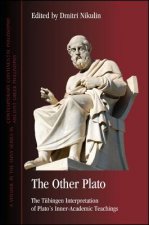
Other Plato
49 € -

Anecdotes of the Cynics
3.57 € -24 % -

Essays and Aphorisms
12.27 € -23 % -
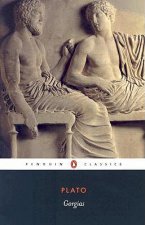
Gorgias
11.76 € -

Order of Things
23.22 € -4 % -

Meditations
14.93 € -23 % -

Nausea
11.14 € -23 % -

Beyond Good and Evil
11.14 € -23 % -

Thus Spoke Zarathustra
9.81 € -24 % -

At The Existentialist Cafe
12.78 € -24 % -

The Trouble With Being Born
13.19 € -19 % -

Discourses, Fragments, Handbook
11.65 € -19 % -
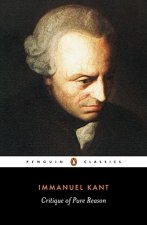
Critique of Pure Reason
18.51 € -21 % -
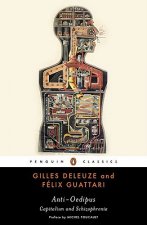
Anti-Oedipus
23.01 € -5 % -

Leviathan
9.51 € -16 % -

Phenomenology of Spirit
34.88 € -

On the Shortness of Life
8.59 € -18 % -

Nicomachean Ethics
6.13 € -18 % -

Socrates' Defence
3.57 € -24 % -

World as Will and Representation, Vol. 1
25.47 € -12 % -
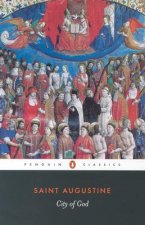
City of God
19.02 € -2 % -

World as Will and Representation, Vol. 2
25.98 € -16 % -

Meditations of Marcus Aurelius
11.04 € -

Consolations of Philosophy
12.88 € -24 % -
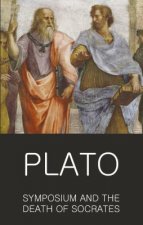
Symposium and The Death of Socrates
6.33 € -21 % -

Being and Event
31.20 € -5 % -

Parmenides
26.29 € -

Republic
11.96 € -17 % -

Gay Science
12.68 € -22 % -

Twilight of the Idols with The Antichrist and Ecce Homo
5.41 € -28 % -
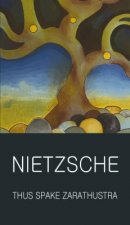
Thus Spake Zarathustra
5.41 € -28 % -

The Sickness Unto Death
11.14 € -23 % -
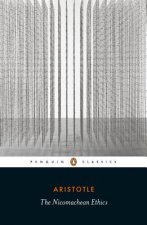
Nicomachean Ethics
11.96 € -17 % -

Ride the Tiger
21.27 € -18 %
Osobný odber Bratislava a 2642 dalších
Copyright ©2008-24 najlacnejsie-knihy.sk Všetky práva vyhradenéSúkromieCookies


 21 miliónov titulov
21 miliónov titulov Vrátenie do mesiaca
Vrátenie do mesiaca 02/210 210 99 (8-15.30h)
02/210 210 99 (8-15.30h)